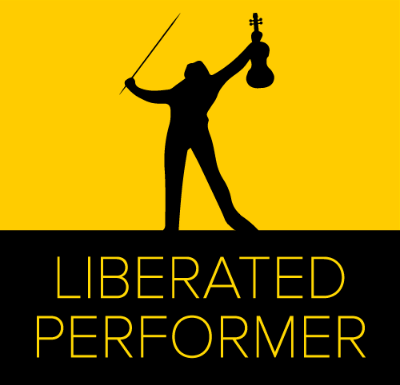3 Things I Learned From My First Professional Performance
It was a cold day in New York City and I headed to the Metropolitan Museum of Art for my first performance as a professional. This was my life now. No school, no safety nets, just real, real consequences. How did I feel?
Photo Credit: Mark Kingsley
I felt pressure from every angle. I had to learn new repertoire in a short amount of time, perform with musicians who I had never performed with before, and deal with a new identity.
Let's break down repertoire. We all know the feeling of being underprepared. It isn't peaceful. It's like your brain goes into intense survival mode...Ok...just trying to come in right, play the right notes, and if possible, follow the composers directions to at least appear musical.
This was no good for my confidence.
Then the whole chemistry thing...I just met my colleagues under a week ago and now I have to understand their body language, playing style, and energy. Oh, and they already knew the repertoire so they would know when I messed up.
This was no good for my confidence.
And last but not least, I viewed myself as a student. How does that make me feel among seasoned professionals and critics? Totally inferior. It's time to play pianissimo.
I began unpacking in the green room with mixed emotions. On one hand, I was actually really excited. This has been what I was working for my whole life and the moment was finally here! However, excitement always quickly evaporates in the face of anxiety. Yep, the guy who has been coaching musicians for the past 4 years is getting nervous. Hypocritical? Possibly, but it wasn't my first performance experience so I knew exactly what to do. Here was my breakdown of how I survived and launched into my professional career with success.
1) Identify emotions immediately
My heart was pumping and I started to retreat into my shell. I quickly told myself that I'm nervous. Now I do this for a couple reasons. The first is the fact that if I lied to myself, I would not allow myself to move on from that emotion. The second is the fact that it's part of my pre-performance routine which involves identifying how I'm truly feeling and proceeding to a mental state of optimal performance level.
2) I acknowledged I was nervous and then...
I literally started shouting reaffirming statements to myself. For example, I reminded myself that this was NOT my first performance, this was NOT the first time I've had to perform underprepared, they HIRED ME for a reason, and I WILL SURVIVE. Now this may seem ridiculous, but honestly getting nervous is ridiculous. A lot of times to change your state of mind you have to do crazy things that are outside the box. This is why passive techniques aren't always the solution.
3) CRAM CRAM CRAM
This particular performance was all about survival. I always advocate that you should enjoy the stage but you earn that right through hard work, patience, and experience. Here I was with no previous professional experience, new repertoire, and new colleagues. It wasn't a setup that would allow for complete freedom on stage like at a recital where you have plenty of time to prepare. So I knew in order to walk away satisfied from this performance, I crammed my intonation, rhythm, and musical practice right up until the performance.
Conclusion
From what I wrote, it wasn't my best performance experience. I was not completely free on stage because I was so tied to managing the performance. However, I view this performance as a key point in my career. This was my first professional performance and I played decently. It gave me the confidence to take on the next performance with just a tad more confidence. I was on my way to becoming a master performer and actually identifying myself as a professional musician.
Good luck in your upcoming performance!
-Coach Cory
contact@liberatedperformer.com


